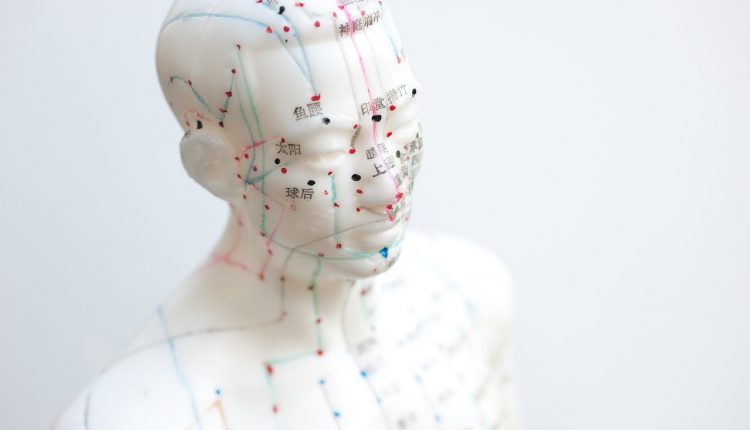Comprehensive Overview of Medical School Programs in Acupuncture Training

The field of healthcare is a vast landscape that encompasses various modalities to address the diverse needs of patients. Acupuncture, a practice rooted in ancient Chinese healing traditions, has gained significant recognition within modern medicine as an effective complementary treatment. As interest in holistic and integrative health approaches continues to grow, medical schools are offering acupuncture training programs to equip students with the skills needed to bridge the gap between traditional and modern medical practices. This article delves into the intricacies of medical school programs in acupuncture training, exploring their curriculum, benefits, career opportunities, and their role in shaping the future of healthcare.
The Evolution of Acupuncture in Medicine
Acupuncture, a key component of traditional Chinese medicine (TCM), involves the insertion of thin needles into specific points on the body to stimulate energy flow, or Qi, and promote overall health and wellbeing. What was once considered an alternative therapy has now gained recognition within mainstream medicine for its potential to alleviate pain, manage various medical conditions, and enhance overall wellness.
In response to the growing interest in complementary medicine, medical schools have developed comprehensive acupuncture training programs that blend traditional knowledge with modern medical principles. These programs cater to both aspiring medical professionals seeking to enhance their skills and individuals with a dedicated interest in becoming skilled acupuncturists.
The Curriculum and Program Structure
Medical school programs in acupuncture training offer a multidimensional curriculum that covers a wide array of topics essential for effective practice. Students engage in in-depth studies of acupuncture techniques, traditional Chinese medicine principles, herbal medicine, pain management, and integrative medicine strategies. The curriculum often includes both didactic coursework and hands-on clinical training, allowing students to apply theoretical knowledge to real-world patient scenarios.
Courses may encompass subjects such as:
Foundations of Acupuncture: Understanding meridians, acupoints, and Qi flow.
Traditional Chinese Medicine (TCM) Theory: Exploring Yin-Yang, Five Elements, and diagnostic methods.
Acupuncture Techniques: Mastering needling techniques, cupping, and moxibustion.
Herbology: Studying the therapeutic uses of herbal medicine in conjunction with acupuncture.
Integrative Medicine: Bridging the gap between conventional and holistic approaches.
Clinical Training: Gaining hands-on experience through patient interactions and case studies.
Ethics and Professional Practice: Learning the ethical standards and legal aspects of acupuncture practice.
Benefits and Opportunities for Students
Students enrolled in medical school acupuncture programs gain a comprehensive understanding of the human body, its energetic pathways, and the intricate connections between physical, emotional, and spiritual health. This knowledge equips them with a unique perspective that can enhance their practice, regardless of their primary medical specialization.
One significant advantage of pursuing acupuncture training within a medical school is the opportunity for interdisciplinary collaboration. Medical acupuncture programs often bring together students from various healthcare disciplines, such as physicians, nurses, chiropractors, and naturopaths. This diverse learning environment fosters a rich exchange of ideas and encourages an integrative approach to patient care.
Furthermore, acupuncture programs affiliated with medical schools often provide access to advanced resources, research opportunities, and experienced faculty members. Students can engage in research projects that explore the efficacy of acupuncture in pain management, stress reduction, and the treatment of various health conditions. This research not only contributes to the broader medical community but also elevates the credibility of acupuncture as a legitimate therapeutic modality.
Career Pathways and Professional Goals
Upon successful completion of an acupuncture training program, graduates are well-prepared to embark on diverse career paths within the field of healthcare. Many choose to establish their private acupuncture practices, where they can offer specialized treatments to patients seeking alternative or complementary therapies. Acupuncturists may collaborate with other healthcare providers to offer comprehensive patient care plans that integrate acupuncture with conventional medical treatments.
Graduates of medical school acupuncture programs may also find opportunities within established healthcare institutions, including hospitals, integrative health centers, and pain management clinics. As the demand for holistic approaches to healthcare continues to rise, institutions are increasingly recognizing the value of integrating acupuncture into their service offerings.
In addition to clinical practice, acupuncture-trained professionals can explore roles in research, education, and advocacy. They can contribute to advancements in acupuncture techniques, conduct studies on its efficacy, and educate both fellow healthcare providers and the general public about the benefits of acupuncture.
Accreditation and Regulation
When considering medical school programs in acupuncture training, prospective students should prioritize programs that are accredited by reputable accrediting bodies. Accreditation ensures that the program meets rigorous academic and clinical standards, preparing graduates for successful careers in acupuncture. The Accreditation Commission for Acupuncture and Oriental Medicine (ACAOM) is one such recognized accrediting agency that evaluates and approves acupuncture programs.
Financial Aid and Support
Medical schools offering acupuncture training programs often have dedicated financial aid offices to assist students in navigating tuition costs, scholarship opportunities, and financial assistance programs. Prospective students should explore these resources to determine the financial feasibility of pursuing an acupuncture program.
Conclusion
As the worlds of traditional and modern medicine converge, medical school programs in acupuncture training play a pivotal role in shaping the future of healthcare. These programs empower students with the knowledge and skills to incorporate acupuncture and other holistic modalities into their medical practice, ultimately enhancing patient outcomes and promoting overall wellbeing. Whether students aspire to become skilled acupuncturists or seek to integrate acupuncture into their existing medical careers, these programs offer a comprehensive education that bridges the gap between ancient wisdom and modern science. In a world where integrative health approaches are gaining prominence, medical school programs in acupuncture training are poised to create a new generation of healthcare professionals equipped to meet the evolving needs of patients and contribute to the advancement of medical knowledge.


Comments are closed.